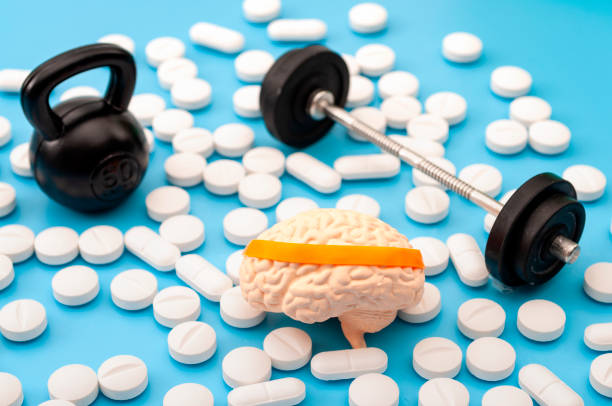5 Effective Weight Loss Pills That Work
Weight management can be challenging, and many people look for additional support beyond diet and exercise. While no pill can replace healthy lifestyle choices, certain weight loss supplements have shown promising results when used as part of a comprehensive approach to weight management. Understanding which options are backed by research can help individuals make informed decisions.

The journey toward weight loss often involves multiple strategies, from dietary changes to increased physical activity. For some individuals, weight loss pills may provide additional support when traditional methods prove insufficient. This article examines five weight loss pills with scientific evidence supporting their effectiveness, including FDA-approved options and over-the-counter supplements that may help in weight management efforts.
FDA Approved Weight Loss Pills Available Over the Counter
Several weight loss medications have received FDA approval and are available without a prescription. One of the most well-known is Orlistat, marketed under the brand name Alli in its over-the-counter form. Orlistat works by blocking the absorption of about 25% of dietary fat consumed during meals. Clinical studies have shown that when combined with a reduced-calorie diet, Orlistat can help users lose 50% more weight than diet alone.
However, users should be aware of potential side effects, which may include oily spotting, gas with discharge, and frequent bowel movements. These side effects typically occur when consuming high-fat meals, which is why a low-fat diet (less than 30% of calories from fat) is recommended when taking this medication.
Science-Backed Weight Loss Supplements
Glucommanan, derived from the konjac plant, is a dietary fiber that absorbs water and becomes gel-like in the stomach. This creates a feeling of fullness that may help reduce food intake. Research published in the Journal of Obesity found that glucommanan, when taken before meals with water, contributed to modest weight loss in overweight individuals.
Green tea extract is another supplement with scientific backing. It contains catechins and caffeine, which may increase metabolism and fat oxidation. A meta-analysis published in the International Journal of Obesity noted that green tea extracts can produce a small but statistically significant weight loss in overweight individuals when combined with moderate exercise.
How Weight Loss Pills Actually Work
Weight loss pills operate through various mechanisms. Some, like appetite suppressants, affect neurotransmitters in the brain to reduce hunger signals. Others, like fat blockers, prevent the digestion and absorption of dietary fats. Thermogenic supplements aim to increase metabolism and calorie burning, while carb blockers reduce the absorption of complex carbohydrates.
Understanding these mechanisms is crucial because it helps explain why certain pills work better for some individuals than others. For instance, someone who struggles with portion control might benefit more from an appetite suppressant, while someone who consumes a high-fat diet might see better results with a fat blocker.
Prescription Weight Loss Medications
While this article focuses primarily on over-the-counter options, it’s worth noting that prescription medications often show stronger results. Phentermine (Adipex-P), Contrave (naltrexone-bupropion), and Qsymia (phentermine-topiramate) have demonstrated significant weight loss effects in clinical trials.
More recently, GLP-1 receptor agonists like semaglutide (Wegovy) have shown impressive results, with average weight loss of 15% of body weight in clinical trials. However, these medications require physician oversight due to potential side effects and contraindications.
5 OTC Weight Loss Pills That Actually Work
Based on current scientific evidence, these five over-the-counter weight loss pills have shown promising results:
| Product | Primary Ingredient | Mechanism of Action | Average Weight Loss | Estimated Monthly Cost |
|---|---|---|---|---|
| Alli | Orlistat | Fat blocker | 3-5% of body weight over 6 months | $50-70 |
| Glucomannan supplements | Konjac root fiber | Appetite suppressant | 1-4.5 lbs over 8 weeks | $15-30 |
| Green Tea Extract | EGCG & Caffeine | Metabolism booster | 0.5-2.5 lbs over 12 weeks | $10-40 |
| Conjugated Linoleic Acid | CLA | Fat metabolism modifier | 0.2 lbs per week | $15-45 |
| Caffeine supplements | Caffeine | Thermogenic | Modest effect when combined with exercise | $5-20 |
Prices, rates, or cost estimates mentioned in this article are based on the latest available information but may change over time. Independent research is advised before making financial decisions.
It’s important to note that the effectiveness of these supplements varies significantly between individuals. Factors such as existing diet, exercise habits, genetics, and overall health status can influence results.
Safety Considerations for Weight Loss Supplements
Before starting any weight loss supplement, consulting with a healthcare provider is essential, especially for individuals with pre-existing medical conditions or those taking other medications. Some supplements may interact with medications or exacerbate certain health conditions.
Many weight loss supplements contain stimulants like caffeine, which can cause side effects such as increased heart rate, elevated blood pressure, insomnia, and anxiety. Others may affect nutrient absorption, potentially leading to deficiencies if not properly managed.
The FDA does not regulate dietary supplements as strictly as prescription medications, meaning quality and ingredient consistency can vary significantly between brands. Choosing products from reputable manufacturers with third-party testing can help ensure safety and efficacy.
While certain weight loss pills may offer modest benefits when used appropriately, they work best as part of a comprehensive approach that includes a balanced diet, regular physical activity, adequate sleep, and stress management. No pill can replace these fundamental aspects of weight management, but the right supplement might provide additional support for those struggling to achieve their goals through lifestyle modifications alone.
This article is for informational purposes only and should not be considered medical advice. Please consult a qualified healthcare professional for personalized guidance and treatment.




